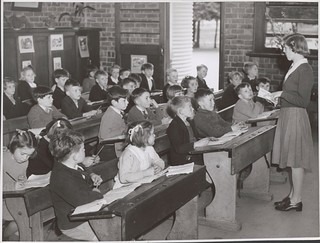Today, we were given links to some of our other peer’s ePortfolios to see what things that they have been writing. I have to say, it is really encouraging to see how they are engaging with blogging and what creative things they are posting. I really admire in them what I would describe as a ‘teacher frame-of-mind’ that is, they see something on the internet/on TV and immediately think about how it links to teaching and write a blog post about it. This is a quality which I really want to develop. One of the key aspects of becoming a teacher is reflecting on our practice and I feel like this is really something which my peers have grasped.
Here is a link to Lauren’s ePortfolio. I really admire her enthusiasm for teaching and her motivation to continually improve. She is great at keeping her blog readers up-to-date with what she is learning .https://blogs.glowscotland.org.uk/glowblogs/laurenseportfolio/
Here is a link to one of Claire Beattie’s posts. I really admire her creativity in having the idea to use ‘the Sims’ to design her classroom, this is another computer programme which could be useful in teaching to provide a visual aid like Claire has. Even more, I admire her extra reading and how she has incorporated this into her blog post. This is another quality I wish to develop. https://blogs.glowscotland.org.uk/glowblogs/cebeportfolio/2016/01/06/180/
Here is a link to Rachel’s ePortfolio. As I noted earlier, Rachel is great at linking t hings that she has heard outside of University to her blog. You can see her care for children and for issues within teaching, as well as in the wider world. https://blogs.glowscotland.org.uk/glowblogs/myunieportfoliorb/
hings that she has heard outside of University to her blog. You can see her care for children and for issues within teaching, as well as in the wider world. https://blogs.glowscotland.org.uk/glowblogs/myunieportfoliorb/
Here are some links to some more blog posts;
https://blogs.glowscotland.org.uk/glowblogs/myuniversityeportfoliolayla/2015/11/03/fear-of-feedback/
https://blogs.glowscotland.org.uk/glowblogs/uodbeckyroomuireportfolio/2015/11/10/my-tired/
https://blogs.glowscotland.org.uk/glowblogs/uodeportfoliommackie/2016/01/17/problematic-problems/
https://blogs.glowscotland.org.uk/glowblogs/rsjuodeportfolio/2015/11/25/longitudinal-coherence-and-the-concept-knot/
https://blogs.glowscotland.org.uk/glowblogs/seiuodeportfolio/2015/11/04/there-has-been-a-breakthrough/
From this experience today I have noted some things I could do to improve my ePortfolio work. I will try to include more pictures in my posts as they make them more eye catching and break up the post a bit. I want to post more about things that aren’t just to do with the TDT, I will actively try to keep my eyes open to what is going on in the news/on media and reflect on how it links to teaching.



